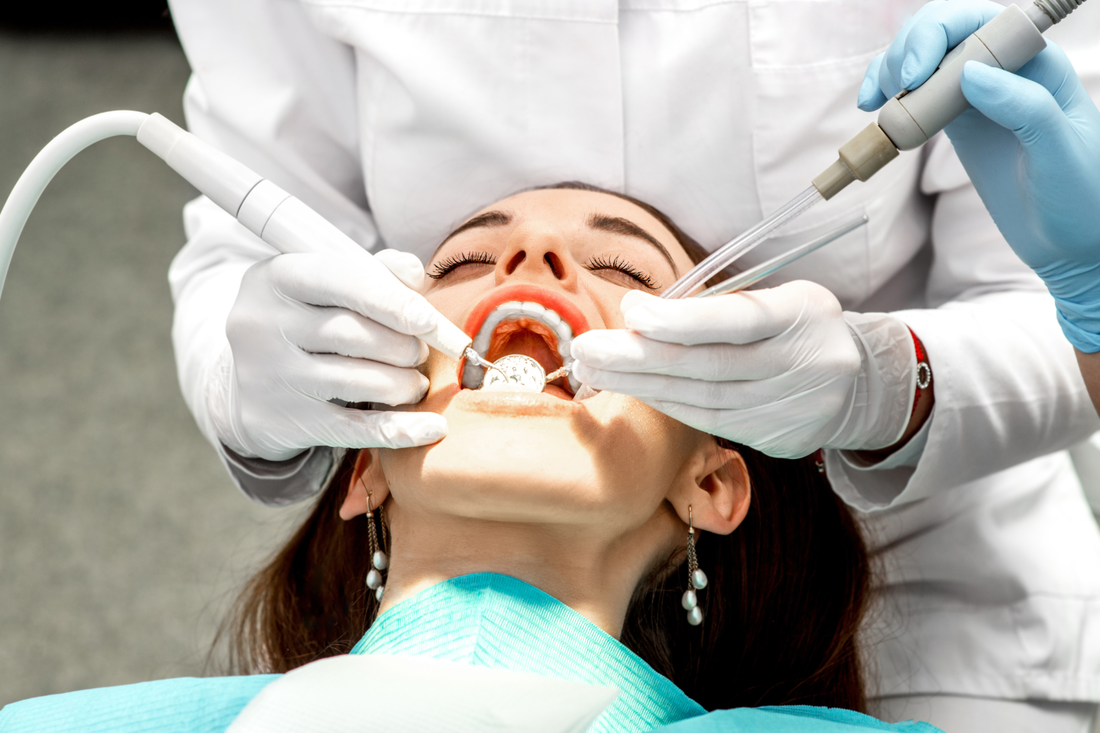|
Maintaining a healthy smile hinges on the crucial role of professional teeth cleaning in achieving optimal oral health. Beyond our daily brushing and flossing routines, professional cleaning sessions offer a specialized and comprehensive approach, utilizing advanced tools to meticulously remove plaque and tartar in hard-to-reach areas. How does professional teeth cleaning differ from at-home oral care?
Professional teeth cleaning goes beyond the routine brushing and flossing performed at home. Dental professionals employ specialized tools and techniques to remove plaque and tartar that may be challenging to eliminate with regular oral hygiene practices. This meticulous approach ensures a thorough cleaning, reaching areas that might be overlooked in daily routines. How does it help in preventing gum disease and tooth decay? Regular professional teeth cleaning plays a pivotal role in preventing gum disease and tooth decay. The accumulation of plaque and tartar can lead to inflammation of the gums and the development of cavities. Professional cleanings effectively remove these harmful deposits, reducing the risk of gum disease and tooth decay, and preserving overall oral health. How does professional teeth cleaning contribute to the early detection of dental issues?Professional teeth cleaning sessions offer more than just cleanliness; they serve as a proactive measure for early detection of potential dental issues. Dentists can identify signs of cavities, gum disease, or other oral health concerns during these appointments. Early detection allows for timely intervention, preventing the progression of problems and addressing issues before they become more severe.
2 Comments
In dental care, one superhero stands out for its remarkable contribution to oral health—fluoride. Beyond fortifying enamel, it combats decay by disrupting harmful bacteria. This dual-action defends against cavities, ensuring robust oral health. This blog aims to highlight the importance of fluoride in maintaining dental health, shedding light on its superhero-like qualities that protect our teeth and promote lasting oral well-being.
How does fluoride strengthen tooth enamel? Fluoride plays a crucial role in strengthening tooth enamel, the protective outer layer of our teeth. When fluoride is absorbed into the enamel, it interacts with hydroxyapatite crystals, forming fluorapatite. This process fortifies the enamel, making it more resistant to acid attacks and preventing the development of cavities. What role does fluoride play in preventing tooth decay? Fluoride acts as a powerful shield against tooth decay by inhibiting the growth of harmful bacteria in the mouth. It disrupts the metabolic activity of bacteria, reducing their ability to produce acid. This acid inhibition is pivotal in preventing the demineralization of tooth enamel and, consequently, the formation of cavities. How does fluoride benefit children's developing teeth? For children, fluoride is especially beneficial during the formative years of tooth development. Incorporating fluoride into their oral care routine helps build strong and resilient teeth. It becomes incorporated into the structure of developing teeth, making them more resistant to decay and ensuring a solid foundation for a lifetime of good oral health. As parents and guardians, instilling good dental hygiene habits in children is a crucial aspect of their overall well-being. We understand the importance of fostering healthy oral practices from a young age. In this blog, we'll explore effective ways to encourage good dental hygiene in children, promoting a lifetime of bright smiles and optimal oral health. Why is Early Dental Hygiene Essential for Children?
Early dental hygiene is paramount as it lays the foundation for a lifetime of good oral health. Introducing proper brushing and flossing habits from a young age helps prevent dental issues, fostering a positive attitude towards oral care. Early exposure to dental hygiene routines also establishes a familiarity with dental visits, reducing anxiety and promoting a positive relationship with dental care professionals. What Are Fun and Engaging Ways to Teach Dental Hygiene? Making dental hygiene fun is key to capturing a child's interest. Utilize interactive tools like colourful toothbrushes, flavoured toothpaste, and playful timers to turn brushing into an enjoyable activity. Singing songs, telling stories, or using educational apps that teach the importance of oral care can make the learning process entertaining and engaging for children. How Can Parents Create a Supportive Dental Hygiene Environment at Home? Parents play a crucial role in creating a supportive dental hygiene environment at home. Lead by example – demonstrate proper brushing and flossing techniques. Establish a routine, making oral care a consistent part of the daily schedule. Ensure a positive atmosphere by praising efforts, providing age-appropriate dental tools, and creating a comfortable setting for dental check-ups. February marks a special occasion in the world of dental care - Dental Health Awareness Month. At this time, the spotlight turns towards the importance of maintaining good oral health. February isn't just about chocolates and valentines; it's also a reminder to give some love to our pearly whites. It's a chance to talk about dental health and help you embrace a routine that keeps your smile shining.
Why is dental health important for our overall well-being? Beyond giving you a winning smile, good dental health does wonders for your whole body. It's not just about preventing cavities; it's about keeping your heart and blood sugar in check. Plus, healthy teeth make it easier to chew, which is pretty crucial for enjoying your favorite foods. Seeing dental care as a partner in your overall well-being is key. What are the steps to dental care? Optimal dental health involves simple yet essential steps that can significantly impact the longevity and vitality of your smile. From the basics of brushing and flossing to the importance of routine check-ups, these steps form the foundation of effective dental care.
As Calgary faces extremely cold temperatures dropping to -30°C and beyond, it's important to think about how it affects our daily lives, especially considering the challenges brought by the harsh winter weather. Extreme cold can impact our teeth and overall oral health so let’s explore why our teeth might become more sensitive and discuss ways to protect them during the freezing temperatures. Is it normal for teeth to be sensitive to extreme cold?
Yes, extremely cold weather can indeed lead to heightened tooth sensitivity. The exposure to frigid temperatures, especially when breathing in cold air, can cause discomfort for individuals with sensitive teeth. This sensitivity may be attributed to various factors, including enamel erosion and exposed dentin. The cold can exacerbate existing dental issues, making it crucial to take preventive measures and seek dental care if sensitivity becomes a persistent concern. Dental solutions, such as desensitizing toothpaste or dental treatments provided by professionals, can help alleviate the effects of extreme cold on tooth sensitivity. Do gums swell in cold weather? While cold weather alone may not be a direct cause of gum swelling, the winter season can contribute to certain conditions that may lead to gum discomfort. The dry and cold air can potentially lead to dehydration, impacting the moisture levels in the oral tissues. Additionally, individuals prone to respiratory issues may breathe through their mouths more frequently in cold weather, potentially leading to dryness and irritation in the gums. Maintaining good oral hygiene, staying hydrated, and addressing any persistent gum swelling promptly with the help of dental professionals can help mitigate these effects. How does winter weather impact overall oral health? Winter weather can have various impacts on overall oral health. Breathing in cold, dry air can contribute to dehydration, affecting the production of saliva, which plays a crucial role in maintaining oral health. Temperature fluctuations, especially when transitioning between indoor heating and outdoor cold, can affect dental materials, such as fillings and crowns. Individuals are encouraged to stay hydrated, maintain regular oral care routines, and seek professional dental advice if they experience any unusual symptoms or discomfort during the winter months. Regular check-ups with a dentist, like those provided by Prairie Winds Dental, can help ensure optimal oral health throughout the winter season. If you're facing tooth sensitivity, don't let it linger! Your comfort matters and Prairie Winds Dental is here to help. Call us at 403-798-8005 to schedule an appointment, and let's work together to address and alleviate your tooth sensitivity. Our personalized care is designed to bring you relief and ensure your smile stays strong. Don't endure the discomfort – take the first step towards a more comfortable and healthier smile with Prairie Winds Dental. |






 RSS Feed
RSS Feed